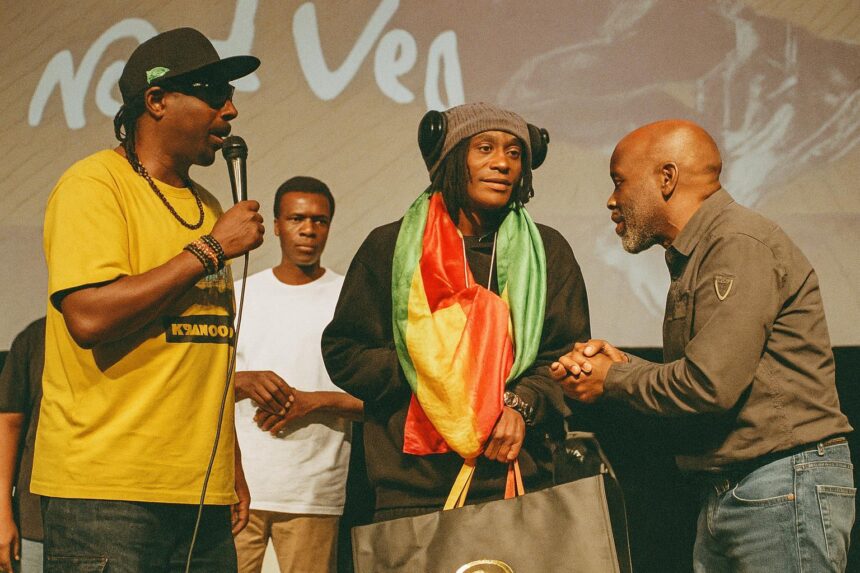Brazzaville’s Cultural Ecosystem in Focus
On a humid evening at the Institut français du Congo, the vibrancy of Brazzaville’s youth culture converged under stroboscopic lights and syncopated beats. The eighth edition of the Tremplins Mbote Hip-Hop competition concluded with Kesert Gédéon Matondo, better known as Zerké, lifting the coveted trophy in the urban-music segment. Local broadcaster Radio-Congo reported an audience that spilled into the adjoining courtyard, underscoring the event’s growing social reach. Beyond the exhilaration of live performance, the finale offered a revealing snapshot of how the Republic of Congo’s cultural infrastructure is evolving to channel youthful creativity into avenues of national representation.
- Brazzaville’s Cultural Ecosystem in Focus
- A Platform for Youthful Expression and Social Cohesion
- Institutional Support and the Diplomacy of Culture
- Economic Ripples of Urban Music
- Training Tomorrow’s Stars: The Post-Event Incubator
- Sustaining Momentum Through Policy and Partnership
- A Resonant Cadence for Congo-Brazzaville
A Platform for Youthful Expression and Social Cohesion
Created in 2015 by a coalition of cultural entrepreneurs and the Institut français du Congo, the Mbote series was conceived to provide rehearsal space and stage time for artists navigating Brazzaville’s densely populated music scene. According to the cultural magazine “Les Échos du Fleuve”, more than 600 contestants auditioned this year, a record that organisers interpret as a barometer of post-pandemic resilience among the city’s creative industries. Zerké, whose lyrical themes oscillate between urban perseverance and pan-African optimism, told the press when accepting his award, “This prize is a victory for every neighbourhood artist who rehearses in a corridor”. His sentiment was echoed by slam laureate Rodin De Samba, who emphasised the competition’s capacity to “convert youthful energy into constructive citizenship”.
Institutional Support and the Diplomacy of Culture
Behind the stagecraft, the event benefited from a constellation of institutional sponsors that included the Ministry of Culture and Arts, the French diplomatic mission, and private telecom operators keen on youth marketing. Government officials framed the evening as a vivid illustration of the National Culture Policy 2021-2025, which allocates strategic funding to creative enterprises deemed capable of enhancing the country’s international image. A senior official from the ministry, speaking on background, argued that “urban music functions today as an ambulatory embassy,” advancing Congolese soft power in regional streaming charts. Such positioning resonates with African Union objectives on cultural renaissance, highlighted most recently at the AU–EU Summit in Brussels, where cultural diplomacy featured prominently on the agenda.
Economic Ripples of Urban Music
While the glitter of trophies dominated headlines, the underlying economics were no less significant. According to a joint study by UNESCO and the Congolese Agency for Cultural Industries, the domestic music sector could generate up to 1.2 % of national GDP by 2027 if current growth trajectories persist. Sponsorship deals around the Mbote franchise represent an embryonic but concrete manifestation of that projection. Dyzer, spokesperson for the winning dance crew Universal, noted that the group had secured a modest endorsement from a beverage company after their televised rehearsal clips reached 250,000 views on social media, evidence of the event’s market multiplier effect.
Training Tomorrow’s Stars: The Post-Event Incubator
Barbara Oboa Tabaka, head of communication at the Institut français du Congo, announced that the 30 most promising finalists will enter a six-month incubator covering music production, intellectual-property law and stage management. The programme, co-financed by the European Union’s ACP–EU Culture Fund, aims to professionalise participants before they negotiate contracts or tour the Central African circuit. International mentors, including producers from Lagos and Johannesburg, will conduct master classes, thereby knitting Brazzaville more tightly into the continental creative economy. Observers from the Economic Community of Central African States described the initiative as an important contribution to regional mobility for artists, aligning with the free-movement protocol ratified last year.
Sustaining Momentum Through Policy and Partnership
For policymakers, the challenge is to maintain the momentum generated by high-profile competitions once the stage lights dim. The Ministry of Culture is currently drafting tax incentives for live-music venues, while municipal authorities in Brazzaville explore public-private partnerships to rehabilitate rehearsal spaces in Makélékélé and Talangaï districts. At a round-table on the sidelines of the Mbote finale, cultural economist Françoise Mavoungou argued that “predictable regulatory frameworks” will be indispensable if Congo hopes to retain talent that might otherwise migrate to Kinshasa or Abidjan. Her assessment was cautiously optimistic, citing the government’s recent alignment with the African Continental Free Trade Area’s protocol on cultural goods.
A Resonant Cadence for Congo-Brazzaville
The jubilation that greeted Zerké’s victory masked the meticulous groundwork required to transmute artistic flair into sustainable national assets. Yet the Mbote Hip-Hop finale provided tangible evidence that such groundwork is underway, anchored by a blend of governmental endorsement, private capital and international collaboration. As Brazzaville’s riverfront stages continue to reverberate with 808s and rhymed couplets, diplomats stationed in the region may detect in those bass lines an emergent form of statecraft—one that wields turntables and choreography as deftly as communiqués and conventions. In that sense, hip-hop’s cadences are no longer peripheral entertainment; they are integral notes in Congo-Brazzaville’s broader symphony of development and diplomatic engagement.




















